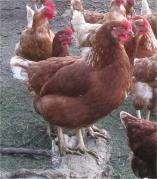An easier pace yesterday; I only attended three sessions at the AWP conference, and had it not been for a regrettable lack of wisdom in touring the book fair when I had two hours to spare, I would have emerged with much lighter bags and heavier purse.
I started my morning with a panel on the Pros and Cons of Poetry and Fiction Contests. These are hugely important in American literary publishing: more than one panellist observed that there would be very little, if any, poetry published in the US without them, as contest income makes up a huge part of small press production costs. Scott Cairns, who runs the Vassar Miller Prize in Poetry, admitted to entering at least 100 competitions himself before having his first poetry collection published. He speculated that some 10,000 manuscripts hit the floors of American literary competitions each year, of which maybe 1000 are published. “The scandal and embarrassment,” he said, “is that those few who are published are subsidised by those thousands who’ll never win.”
Cairns’ judging process is instructive: he first reads the nearly 500 manuscripts entered in his competition for “style and linguistic density”: basic competence, really, which reduces the number by half. He then employs his own biases and preferences for lineation, which brings numbers down to about 100. He then looks for a narrative arc, or some coherence as a book, leaving him with 40-50 publishable manuscripts. These he must – somewhat arbitrarily – prune down to no more than 10-12 manuscripts to hand on to the judge.
Next stop was The Art of the Anthology. The editors of the now (in American poetry circles) notorious anthology, Legitimate Dangers: American Poets of the New Century, Cate Marvin and Michael Dumanis, did not explain to the cognoscenti present what I learned later, that their anthology had been the subject of anonymous vitriolic personal attacks on blogs. Kevin Prufer, whose The New Young American Poets anthology had inspired them, opined that “any good anthology will make people angry” – though of course what Marvin and Dumanis experienced sounds more like craziness than critical rage. An interesting group of editors made up the rest of the panel. Veteran anthologist Alan Michael Parker talked about his eccentric The Imaginary Poets project which required contributors to translate and gloss a poet they’d made up; Denise Duhamel was readying Saints of Hysteria anthology of collaborative poetry for launch; and Arielle Greenberg was looking for a new publisher for her anthology of essays about women poet mentors, written by women poets, after her first one backed out on the grounds it was not academic enough. They were surprisingly unified on the subject of paying minimal or no fees for including poets in their anthologies, on the grounds the poets would sell more books through the anthology’s promotion. They also pointed out that they were writers too, and were sacrificing a year or more of their own writing to put an anthology together.
Accidental Dominance: The State of Small Press Publishing was a panel of young publishers of independent, alternative presses – Fence Books, Nightboat Books, Ugly Duckling Press and Action Books. They talked about the collaborative nature of their work and the community they are building through publishing and cooperating.
After that, there was an excellent reading by American poetry stars Donald Hall and Jane Hirschfield, and we stepped back into the blasting early evening heat to find a restaurant. Today’s pick was Sol y Luna, a terrific Mexican restaurant on our favourite street, South Congress. My chicken chipotle plate was delectable, and so were Judy’s eggs with plantain. I’d had a sliced pork sandwich from my bbq mecca, Ironworks, for lunch, and I loved the pork as much as the beef I had on my first visit there: it was spicy, smoky and pepper-crusted.
But our biggest thrill of the day was being offered seats (ma’am!) on the bus by a chorus of young men who leapt to their feet at our burdensome approach. Too many’s the time I’ve watched Canadian and British beardless youths slump into their headsets when elderly or overwhelmed passengers get on public transport: nine times out of ten it’s the women who step up. But it’s no surprise here. All round, we’ve been absolutely knocked out by how friendly and helpful everyone we meet here is. These Texans are somethin’!
Off we go to start our third and final day at the races.










7 Responses to Middle day